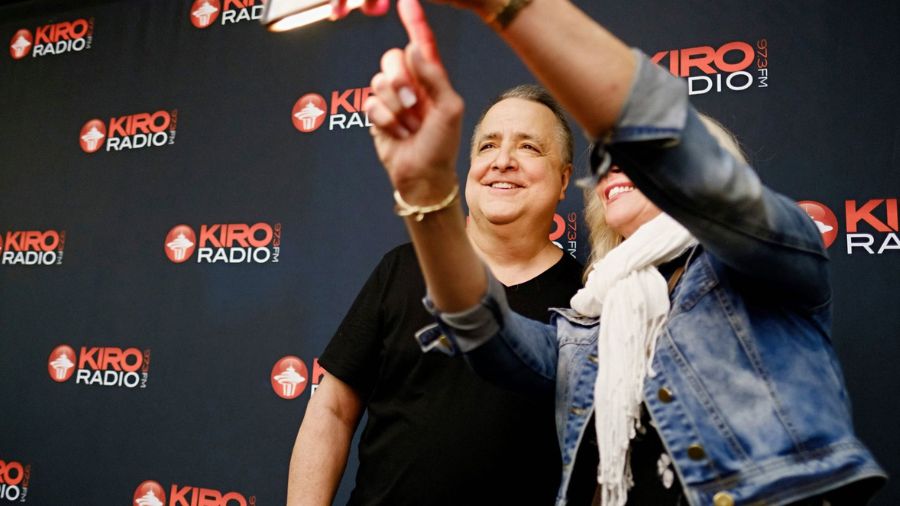Fraud case uncovers holes in local services
Feb 8, 2018, 3:00 PM | Updated: 3:24 pm

We spend — in Seattle and King County — about $100 million per year on homelessness. The problem has skyrocketed. I believe the homelessness industry is filled with racketeering and fraud. It’s designed not to help people who are down on their luck, but it’s designed to extract as much money from us as possible. We wanted to look into a specific case. We want to know how Deka Hirsi was able to repeatedly defraud taxpayers.
How in the world can Hirsi get away with all this? KIRO Radio reporter Hanna Scott dug into Hirsi’s past to figure out how this can happen.
By Hanna Scott, KIRO Radio
She hit and killed a man while driving and talking on a cell phone and tried to cover it up, then scammed the federal government out of hundreds of thousands of dollars by defrauding three different public assistance programs. But Deka Hirsi never saw any jail time for those crimes.
Hirsi moved to Seattle from Somalia in the 1990s when she was 12 years old and went to Ballard High School. Now, at 39 she has six kids, and a husband, as well as other family, including two elderly parents.
In 2001, Hirsi started receiving Section 8 assistance, the federally funded housing assistance program for low-income people run locally by the Seattle Housing Authority. In 2005, she was kicked off the program when they found out she lied about her income and her family situation. She appealed, arguing she was mentally disabled and was reinstated to the program.
In the years that followed, Hirsi was approved for public assistance for three federally funded programs.
The problem: just about everything Hirsi claimed to qualify for those programs was a lie.
That lie started to unravel in 2010 when the federal investigators received a tip that Hirsi was scamming the subsidized housing assistance program, and a Seattle Housing Authority investigator found the fraud went way beyond lying to the housing authority.
A larger joint investigation was launched with the FBI, DSHS and investigators from other federal agencies and it uncovered what federal prosecutors describe in court papers as “one of the most manipulative, extensive and lucrative welfare frauds” ever exposed in the district.
Investigators found Hirsi lied to qualify for the housing program by claiming she was a single mother of five children. She also made false claims about her income.
She was also earning money through the federally funded COPES program to care for her parents, who she said could not care for themselves. DSHS runs Washington state’s program and approved the parents for over 80 hours of combined care a week with Hirsi as the caregiver.
Hirsi then told DSHS she needed childcare help for her five kids since she was working overnight caring for her parents. She was approved for the Working Connections Child Care program, which provides federal child care subsidies for low-income parents so they can work.
From 2010 to 2014, prosecutors say Hirsi claimed her five kids were getting 12 hours a day of nighttime childcare seven days a week. DSHS then paid the daycare provider a direct cash subsidy based on hours Hirsi claimed her kids were being cared for.
The investigation spanned years with investigators spending months conducting surveillance on Hirsi’s home, her parent’s home, her daycare provider and other sites. They also reviewed thousands of hours of surveillance video that ultimately proved just about everything Hirsi claimed to qualify for all three program was a total sham.
On top of lying to qualify for the programs, she also falsely reported the hours she worked caring for her parents and hours her kids were at daycare. Investigators found she was almost never at her parent’s home providing care, despite reporting she had worked more than 80 hours a week for years. She also falsely reported her kids were getting nearly 80 hours of daycare a week, when they were never actually at the facilities.
Related case
That discovery also led to federal fraud charges against one of Hirsi’s daycare providers, Hindia Yusef, who was convicted for fraudulently billing DSHS for $250,000 worth of childcare she did not provide for both Hirsi’s kids and others. Under a plea deal, prosecutors asked for a lower than standard sentence of six months in jail and six months house arrest, noting that Yusef had a difficult history, fleeing Ethiopia and spending three years in a Kenyan refugee camp before receiving asylum in the United States more than 20 years ago. The judge sentenced Yusef to probation, saying he wanted to show the local East African community the American Justice system can be merciful and stern.
Federal investigators finally confronted Hirsi in 2014 at the market where she worked and served a searched warrant at her house. Even then, she repeatedly lied to the FBI, denying she worked at the store, that her husband live at her home, about caring for her parents, and about the childcare her kids were getting.
Charges filed
Hirsi was charged in federal court in 2017 with three counts of Theft of Public Funds for defrauding each of the three federal assistance programs:
HUD-funded Section 8 Housing Assistance: $57,526
The COPES and WCCC programs, both federally funded and administered by DSHS: $270,983
The total Hirsi stole from the three programs combined was $328,509.
She plead guilty to the charges under a plea deal where federal prosecutors recommended a 12 month and one day sentence. Sentencing guidelines suggested a sentence of 18 to 24 months. Hirsi’s lawyer asked for probation, citing her mental health issues from trauma she suffered living in Somalia as a child, including seeing her brother murdered. Hirsi’s lawyer also argued she had serious cognitive disabilities.
Prosecutors said probation was not an appropriate sentence because most fraud cases with over $150,000 in losses to welfare services have led to at least two- or three-year sentences. They also disputed claims that Hirsi has mental health and cognitive issues, pointing out that she was able to successfully run a complex fraud scheme for years.
They also pointed to a 2014 vehicular homicide case in Seattle against Hirsi where she hit and killed a man in a crosswalk and tried to cover up that she was talking on her cell phone at the time by giving cops doctored phone records.
The King County Prosecutors Officer eventually offered Hirsi a plea deal, lowered the charge to reckless driving and recommended a two-year suspended sentence. It’s not clear why the suspended sentence was recommended and the prosecutor’s office has not responded to KIRO Radio’s request for comment.
The daughter of the man Hirsi killed was in federal court for her fraud case. In a statement to Judge Robert Lasnik, she urged him to give Hirsi the maximum sentence, saying that was her only chance for justice for her father since Hirsi got a suspended sentence.
Before handing down the sentence, Judge Lasnik admitted that given the amount of money stolen and sophistication of the lies involved, Hirsi’s case was one of the most serious frauds he’s ever seen and certainly worth a year in jail.
But, in a stunning pivot Lasnik said he believed Hirsi had PTSD from her experiences more than 20 years ago in Somalia, which he likened to what Jewish people went through in Germany. The judge admitted that to be consistent with similar cases, he would need to sentence Hirsi to at least six months. Instead, he gave her three years probation.
Where is the oversight?
Hirsi’s fraud involved multiple agencies, including the Seattle Housing Authority where she received vouchers for the housing program. To qualify, you have to make less than 50 percent of the median income to qualify.
The other two programs were federally funded but run by DSHS teams.
A provider, such as Hirsi, getting paid to care for parents through the COPES program have to self-report there hours worked every two weeks after DSHS approves the person to provide a certain number of hours of care.
The WCCC child care program, run by DSHS, is for parents such as Hirsi who need subsidized daycare for their kids. Those parents have to be approved by proving income, household composition and a few other eligibility requirements.
The agency says most people on these programs also receive cash, TANF, or food assistance, so case workers compare records in those programs to compare it with what an applicant is claiming for the childcare program.
But for the most part, these programs all rely heavily on self reporting, with annual re-certifications and in some cases annual home visits. But , unless a case worker finds something questionable, there is no additional verification.
While Hirsi was being investigated, she was also in the process of applying for a Habitat for Humanity Home, which she now lives in. Gail Luxenberg, CEO of Habitat for Humanity Seattle – King County, says they have a very thorough background check process and that in Hirsi’s case, nothing came up to disqualify her. Luxenberg says Hirsi completely misrepresented her financial situation and other information during the application process as she did to the social services programs she defrauded. Luxenberg says Habitat went to work on correcting the problem as soon as it was made aware of Hirsi’s federal fraud conviction and has started the process of removing her from the home.













